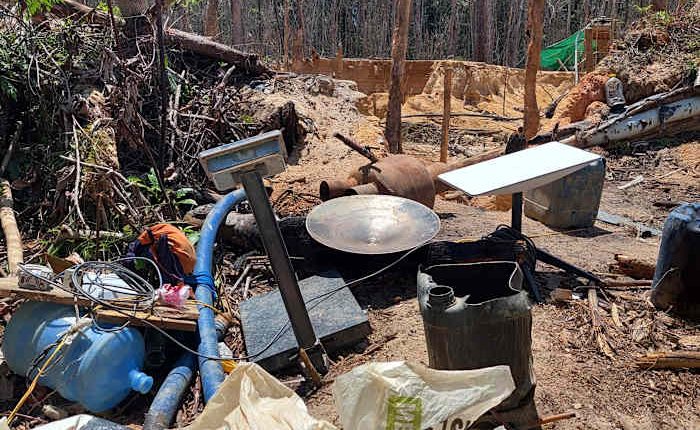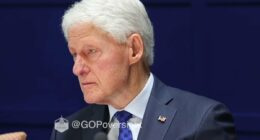Share this @internewscast.com

BRASILIA – Brazil’s Federal Prosecutor’s Office revealed a new agreement with Elon Musk’s Starlink aimed at reducing the misuse of its services for illicit mining and other unlawful activities in the Amazon.
Starlink’s compact, high-speed internet service has quickly expanded throughout the Amazon, a sprawling area that has long faced challenges with slow and erratic internet connectivity. Unfortunately, criminal elements have also started using the service to manage logistics, facilitate payments, and obtain warnings of potential police operations.
It’s the first agreement of its kind aimed at curbing such use following years of pressure from Brazilian authorities.
As part of the agreement, Starlink, a firm under Musk’s SpaceX, will begin requiring identification and proof of residency from all new subscribers within Brazil’s Amazon region come January. Additionally, the company will supply Brazilian authorities with user registration information and geolocation details for internet units in scrutinized areas.
If a terminal is confirmed to be used for illegal activity, Starlink has committed to blocking the service. The deal is for two years and can be renewed.
Illegal gold mining has contaminated hundreds of miles of Amazon rivers with mercury and disrupted the traditional lives of several Indigenous tribes, including the Yanomami. Starlink, which first arrived in the region in 2022, has enabled criminal groups to manage mining operations in remote areas, where logistics are complex and equipment and fuel must be transported by small plane or boat.
“The use of satellite internet has transformed the logistics of illegal mining. This new reality demands a proportional legal response. With the agreement, connectivity in remote areas also becomes a tool for environmental responsibility and respect for sovereignty,” federal prosecutor André Porreca said in a statement.
Illegal gold miners and loggers have always had some form of communication, mainly via radio, to evade law enforcement. Starlink, with its fast and mobile internet, has significantly enhanced that capability, Hugo Loss, operations coordinator for Brazil’s environmental agency, told The Associated Press in a phone interview.
“They’ve been able to transmit in real time the locations of enforcement teams, allowing them to anticipate our arrival, which seriously compromises the safety of our personnel and undermines the effectiveness of operations,” Loss said. “Cutting the signal in mining areas, especially on Indigenous lands and in protected areas, is essential because internet access in these locations serves only criminal purposes.”
Jair Schmitt, head of environmental protection for the agency, said what’s also needed is tighter regulation on the sale and use of such equipment.
The AP emailed James Gleeson, SpaceX’s vice president of communications, with questions about the deal, but didn’t immediately receive a response.
___
The Associated Press’ climate and environmental coverage receives financial support from multiple private foundations. AP is solely responsible for all content. Find AP’s standards for working with philanthropies, a list of supporters and funded coverage areas at AP.org.
Copyright 2025 The Associated Press. All rights reserved. This material may not be published, broadcast, rewritten or redistributed without permission.











